Nguyen Qui Duc – a journalist, writer, editor, translator, and broadcaster, with numerous achievements listed on the international Wikipedia page. Originally from Da Lat, his life spanned many countries around the world – the United States, the United Kingdom, Morocco, Indonesia, Japan… Finally, he returned to Vietnam and chose stability in Hanoi. Amidst the intertwining of old and new, the waves of integration, and the daily economic challenges, this man from the 1950s generation remains unique, contributing a touch of culture and simple joy to the capital city.

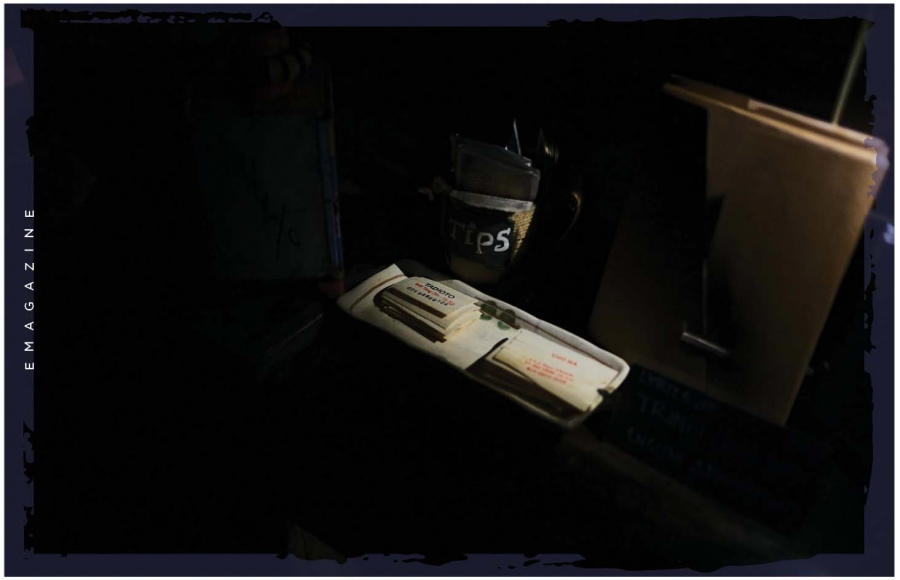
"The greatest bar in the universe" is a tiny 8-square-meter establishment with a bar counter and five chairs, selling only unmixed whisky and gin—premium, high-end drinks. The owner loves whisky and Japanese culture—something easily noticeable at Chú Ba, from the small bar counter to the Japanese-patterned curtains hanging around the door. It's completely detached from the glitz and glamour typically found in modern bars.
A man walked silently past the bar, my friend bowed to him and nudged me, whispering, "That's Uncle Duc."

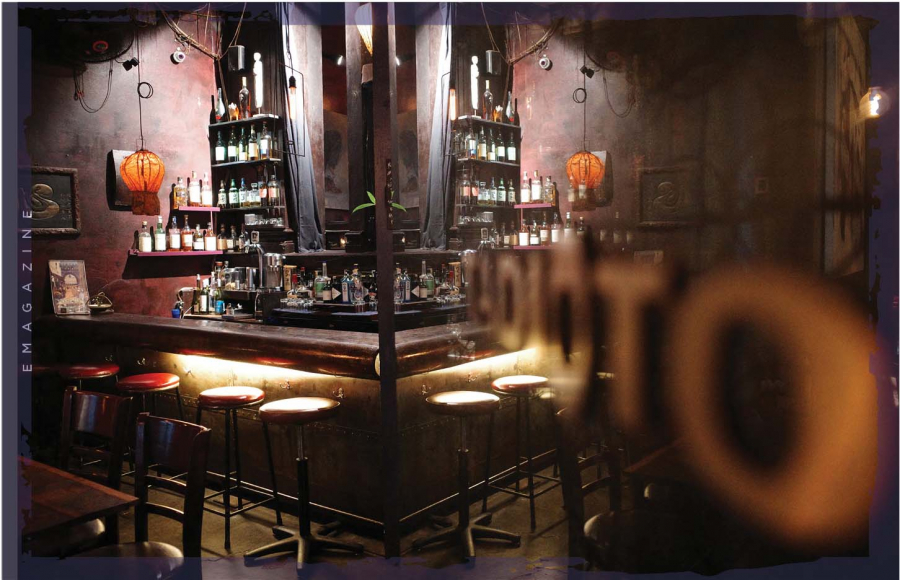
My next "meeting" with Mr. Duc was at Tadioto. That day, Mr. Duc was organizing a film screening in memory of the Korean director Kim Ki-duk. The director had passed away suddenly, and the screening was therefore also organized abruptly. Excluding me and Mr. Duc, this free event only had two audience members in attendance (although, in fact, both were acquaintances of his). "Kim Ki-duk was a friend of mine," Mr. Duc said, a concise statement that answered my question about the profit motive of the film screening.
Hanoi's "fans" probably all know Tadioto, a name that has existed for over 13 years. Tadioto has been located on Hang Khay, Truong Han Sieu, Trieu Viet Vuong streets, and now sits on Tong Dan street. In this bar, with its witty blend of Vietnamese, Japanese, American, and other cultural influences, you'll rarely find flashy designer outfits, boisterous laughter, or people eagerly taking photos for social media. "Tadioto isn't a place for people to dress up and show off," Mr. Duc shared. "There aren't many customers here, but they are all discerning individuals with experiences abroad or in life; they don't chase social trends. My customers are people who know what they like."
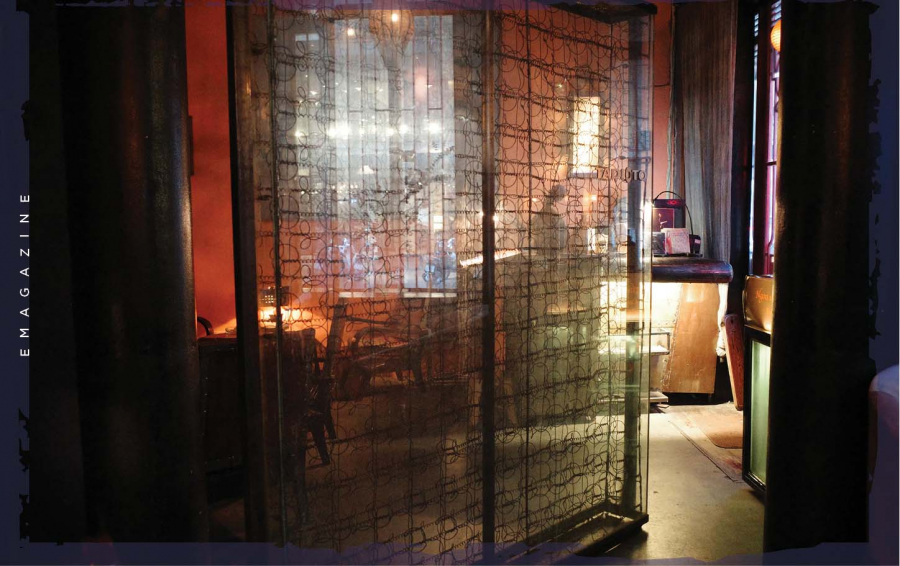
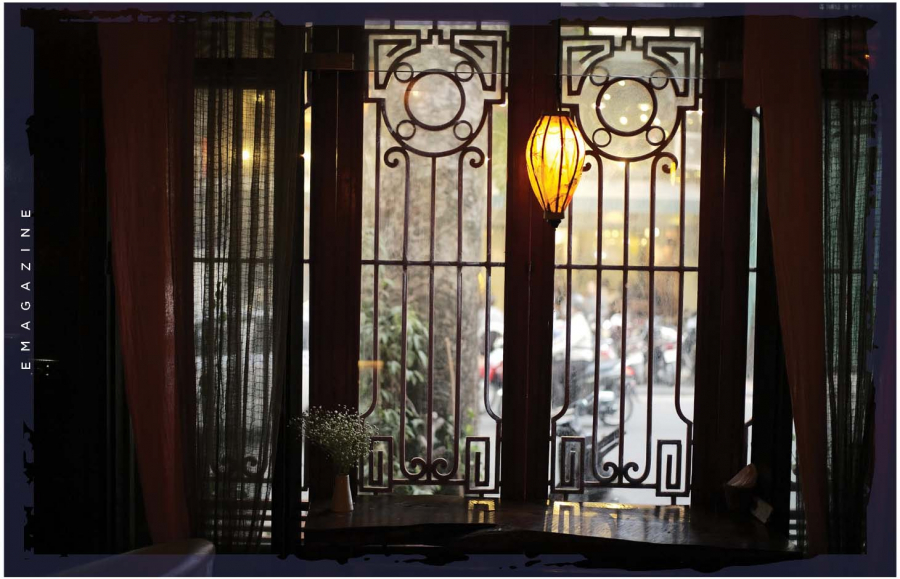
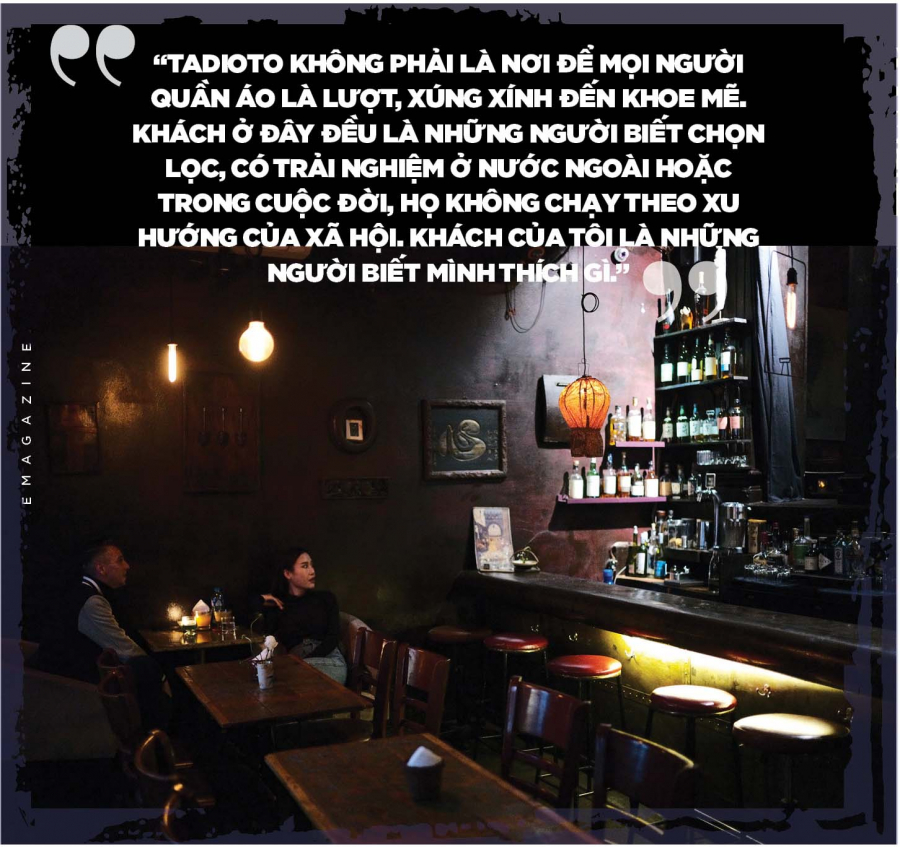
Besides the artistic and poetic elements reflected in the decor, Tadioto features weekly live music performances, mostly jazz, by local and international artists. “For me, Tadioto is a space for artistic experimentation. I carefully select interesting artists who aren’t as common as those in other venues. They are foreigners, Vietnamese, veteran artists, and young talents… Each brings a unique personality and cultural aspect of their homeland to the performance. Through this, I only hope to contribute something to the community.” The owner himself doesn’t use flowery language or elaborate posters to promote his programs, but simply advertises with two concise words: Welcome. “I don’t need customers to come here to listen to music and drink as a form of entertainment,” he explains.
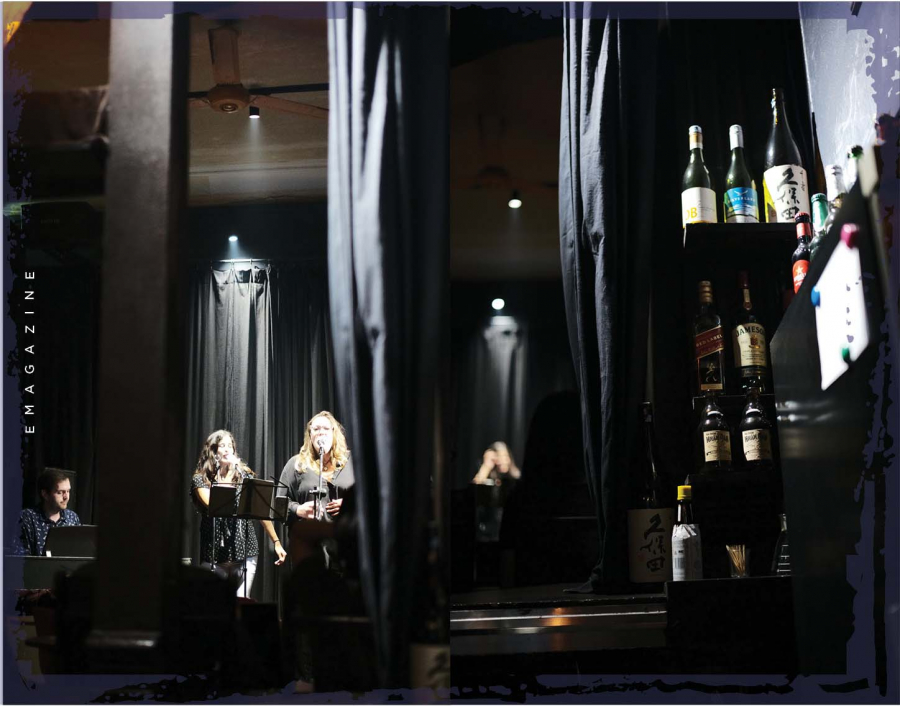
In Vietnam, the name Nguyen Qui Duc is often associated with keywords like "art" and "aesthetics," but internationally, he was better known as a journalist. While his life now focuses on running his business, his journalistic concerns for society are still expressed through non-profit environmental and human rights events organized at Tadioto. He doesn't organize any social activities himself, but he's always ready to support young people in carrying out such programs. "I've learned so much working with young people," he proudly added.
My conversation with Mr. Duc came to a halt when it was "time" for him to go inside Tadioto to greet the guests. Some people started as his friends and became regulars, while others became his friends. "At Tadioto, I get to do what I love, enjoy great music nights. Then there are strangers who come in; they drink, listen to music, and share a similar spirit and experience. For me, that's a way of sharing, a joy, and a huge motivation."

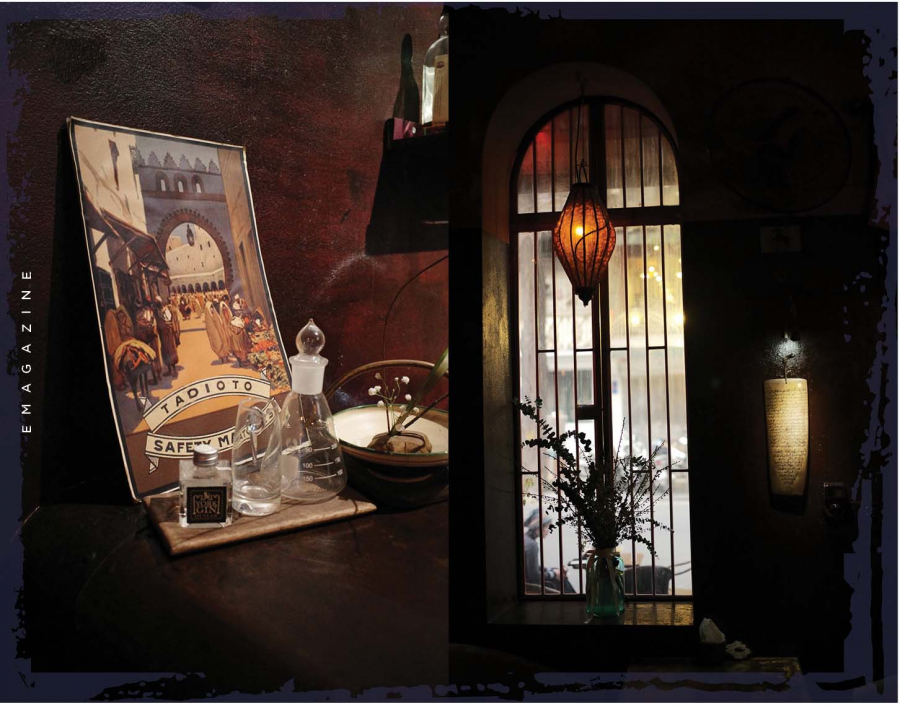
Our third "meeting" took place at Uncle Ba's. That evening, this 8-square-meter bar was empty except for me (and the owner). In the small, rustic space, Mr. Duc shared more, expressing his joy more clearly.
But where does Mr. Duc's joy come from – when some restaurants are empty, others are crowded but understaffed, and some even have to close (his clothing store in Hoi An closed due to the pandemic)? From the perspective of a businessman, someone seeking wealth and money, it's hard for anyone to be happy. But Mr. Duc has the opposite spirit; he even enthusiastically told me about his plans to open more restaurants… with styles that blend Hong Kong, Thang Long, Japan, and many other colors. That's when I realized this owner doesn't see himself as a businessman at all, but simply as someone who "worships" culture – his own culture and the cultures of other countries. He "absorbs" the cultures of the places he's visited, then becomes a "transit point," spreading those cultural spirits to his customers. A touch of contemporary style at Tadioto, a touch of Japanese style at Uncle Ba's, a touch of Middle Eastern style at the OZÙ (clothing store)..., and so on, he quietly contributes a little joy to every corner of Hanoi.
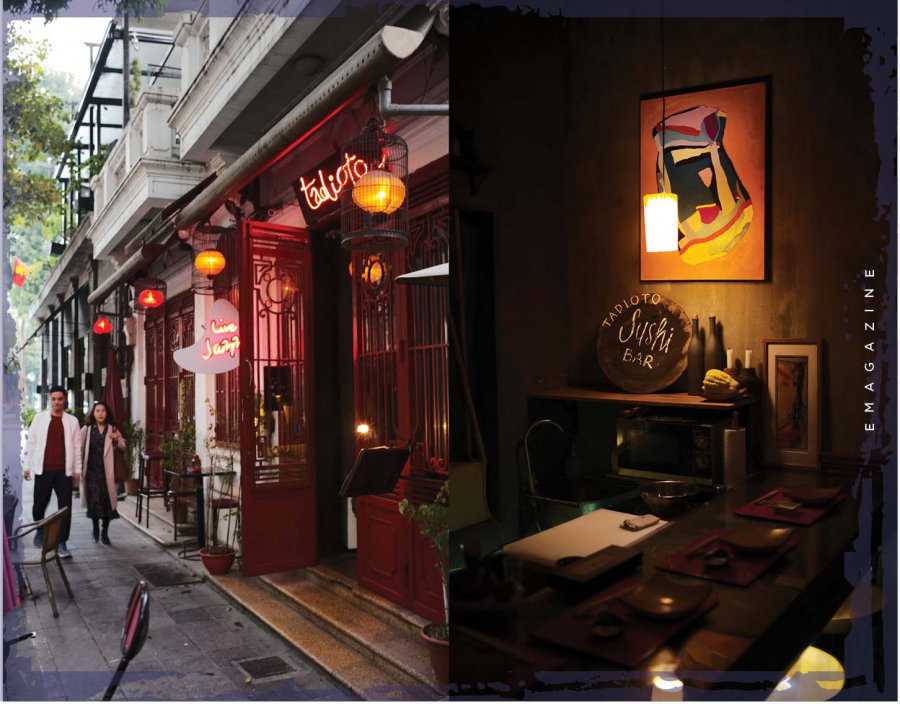
"So, what is your favorite job?"
"He has a house in Tam Dao, where he often stays alone to think, read, write, draw, and so on."
"You mean work?"
"Well, those are the things I consider work. The jobs I enjoy the most."

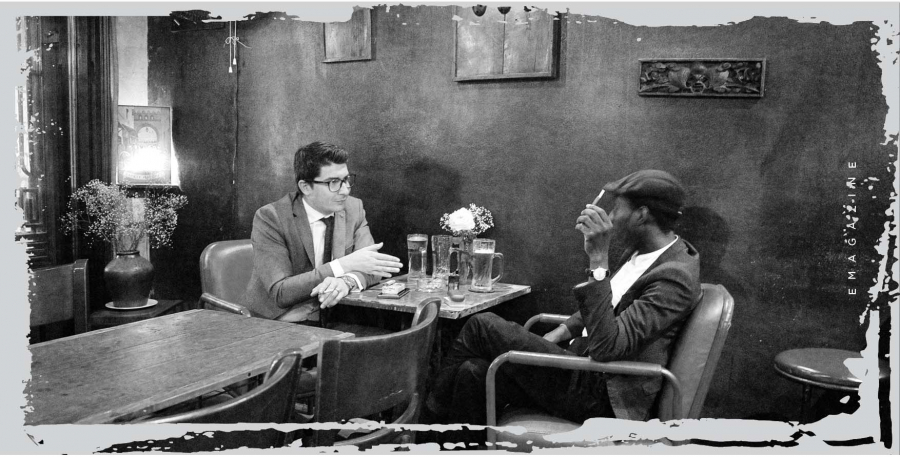
I stopped by Moto-san Uber Noodle when Mr. Duc wasn't there. Moto-san is a ramen restaurant with a distinctly Japanese style, subtly infused with contemporary Vietnamese touches (and consistently ranks highly in polls for the best ramen restaurants in Hanoi). Amidst the crowd, a foreign band walked in, ordered five servings of ramen, and urgently mentioned they only had 10 minutes to eat before their performance. The staff worked at lightning speed, bringing out steaming bowls of noodles one by one onto individual plates – a presentation that meant each staff member could only carry one serving at a time, instead of five at once. “They need it urgently, maybe we shouldn't use plates anymore?” I observed from behind and offered my opinion. “That wouldn't work,” the staff member replied firmly, then continued working. A truly Japanese-style atmosphere in a small eatery in the heart of the capital.
It's often said that if you want to know the true character of a restaurant owner, look at their staff.
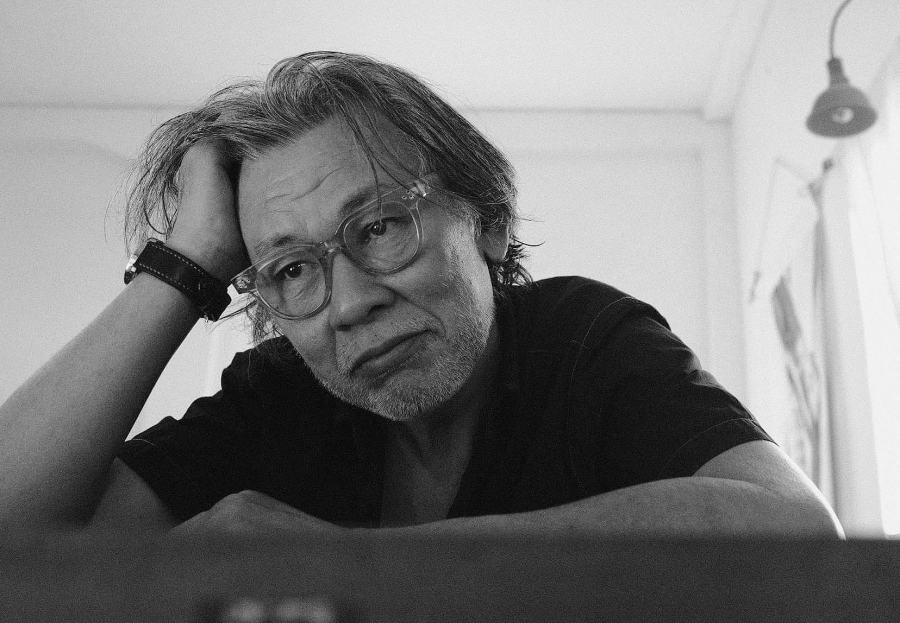
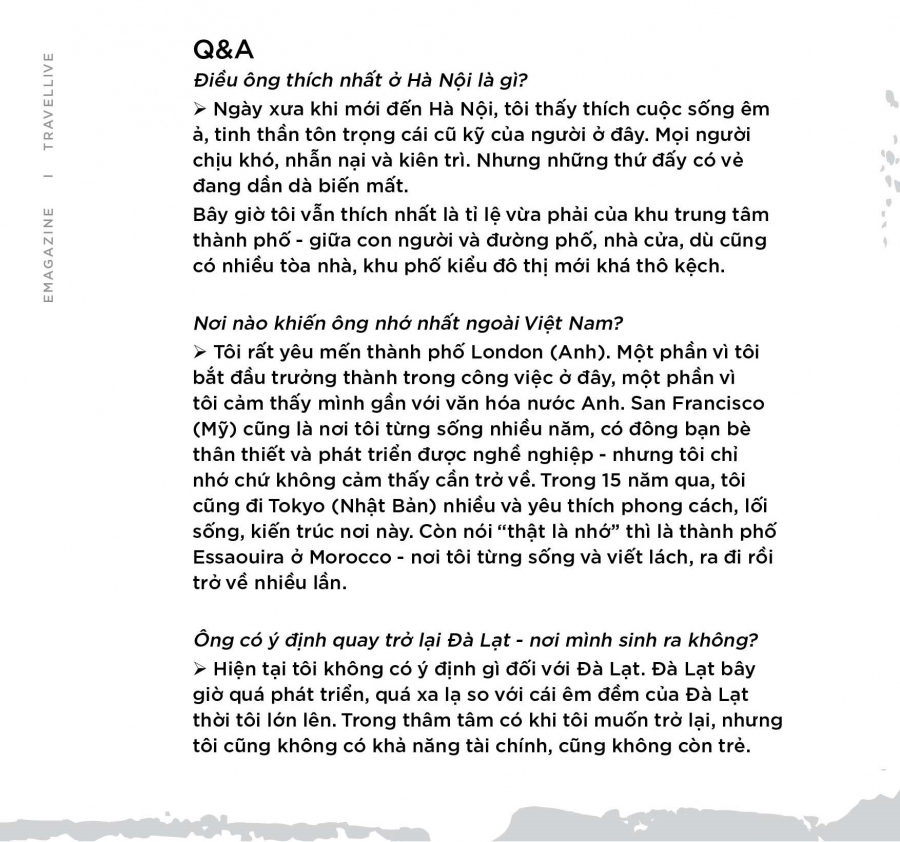


 VI
VI EN
EN












